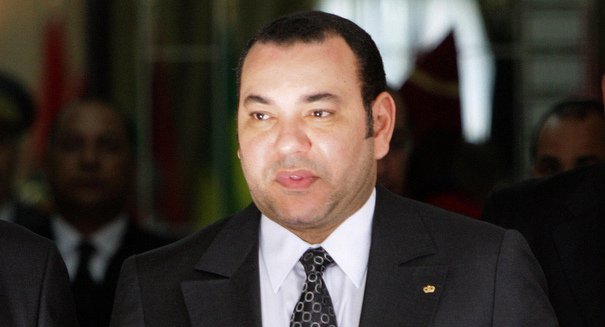In recent months, Morocco has seen sharp verbal confrontations between the Islamists’ ruling coalition and a number of the political leaders close to the palace—particularly Ilyas El Omari of the Authenticity and Modernity Party (PAM). These arguments have been over murder accusations leveled against a leader of the ruling Justice and Development Party (PJD), Abdelali Hamieddine, and have generated strong reactions from PJD leaders, including Prime Minster Abdelilah Benkirane. To understand the context of this surge in tension—which could mark the beginning of the end for the Benkirane government—a look at the recent past is warranted.
In early September 2012, Abdel El Ali Hamieddine, a prominent PJD leader, wrote a stinging op-ed in Akhbar Al Yaoum, a pro-democracy newspaper, that was republished in known secularist news site lakome.com, arguing that the king was not respecting the constitution and was seizing powers which fall to the prime minister. Only a few days later, a statement signed by the family of Mohamed Benaissa Ait El Jid—a leftist student killed in a 1993 skirmish between leftist and Islamist students at Mohammed bin Abdullah University in Fez—was published in a number of newspapers accusing Hamieddine of taking part in the fight that left Aid El Jid dead. The statement demanded that Hamieddine be put on trial. An investigation by the PJD discovered that the family’s complaint had been faxed from a party closely allied to the palace.
Given the tension between the Islamists and the palace—which sometimes results in closer ties between leftist grassroots activists and the targeted Islamists—the regime’s intelligence agency could plausibly be behind the sudden reemergence of the Ait El Jid affair 20 years later. Several months ago, the prime minister himself was accused of condoning the assassination of socialist leader Omar Benjelloun in 1975. Likewise, in 2006, when the Justice and Charity Association was actively trying to break out of its isolation (imposed by the regime) as an Islamist organization and engage with ordinary Moroccans, murder charges were suddenly filed against a Justice and Charity activist in Fez, Omar Mohib—who was then sentenced to 10 years’ imprisonment for his alleged involvement in the death of Ait El Jid.
The regime’s intelligence agencies have also long exploited the deeply rooted hostility between Islamists and secularists and have played them against one another. In the 1990s, clashes between the two even claimed several lives, including Ait El Jid. The regime was also behind the formation of Fouad Ali El Himma’s secularist party, PAM, whose sole purpose was and remains to challenge the Islamist opposition. However, this party’s self-proclaimed secularism stops at the king’s “commander of the faithful” status that allows him to blend politics and religion. This religious aspect of the king’s powers has been used, since the days of former king Hassan II, to sidestep the more modernist aspects of the constitution, which give powers to elected institutions.
Thus, when Hamieddine leveled what was an unusually direct criticism at the king and called on him to “respect the constitution,” it appeared as though he was also challenging the king’s role as commander of the faithful. Supporters of the monarchy saw this as a breach of etiquette—biting the hand that feeds—and particularly offensive coming from an Islamist leader whose party heads up the ruling coalition. Hamieddine is not new to such crossfire; he was one of the most vocal supporters of the youth-led demonstrations of February 20, 2011 against “despotism and corruption,” despite the PJD leadership being officially opposed to street demonstrations. During recent years has also pushed for more Islamist-secularist cooperation to consolidate the ranks of those opposed to absolute monarchy. Accusations were then leveled against Hamieddine both for pursuing his campaign for what he calls a “democratic interpretation” of the constitution, and for driving a wedge between potential allies against the monarchy’s authoritarianism.
Maati Monjib is a Moroccan political analyst and historian. He is the editor of Islamists versus Secularists in Morocco (2009).
* This article was translated from Arabic.





